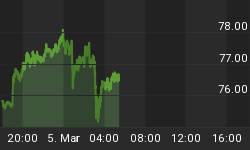Once again today's job numbers show Collectively, Economists Are A Perpetually Optimistic Lot. Payrolls were expected to drop 175,000, the median of 84 estimates in a Bloomberg News survey of economists. Forecasts ranged from decreases of 260,000 to 100,000.
Jobs losses this month totaled 263,000, worse than even the most pessimistic economist projection.
Actually, economists missed by another 13,000 because revisions subtracted 13,000 from payroll figures previously reported for August and July.
Moreover, the unemployment rate hit the highest level since 1983.
Bloomberg discusses the above in U.S. Economy: September Job Losses Exceed Forecast.
What really caught my eye though is the expected backward revision coming February 2010.
The Labor Department today also published its preliminary estimate for the annual benchmark revisions to payrolls that will be issued in February. They showed the economy may have lost an additional 824,000 jobs in the 12 months ended March 2009. The data currently show a 4.8 million drop in employment during that time.
The projected decrease was three times larger than the historical average, the Labor Department said. Most of the drop occurred in the first quarter of this year, probably due to an increase in business closings, the government said.
Birth / Death Revisions
For months on end, I have been harping about how ridiculous the Birth/Death Model assumptions are, most recently in Jobs Contract 21th Straight Month; Unemployment Rate Hits 9.8%
At this point in the cycle birth death numbers should have been massively contracting for months. The BLS is going to keep adding jobs through the entire recession in a complete display of incompetence.
The Wall Street Journal has more on this story in Early Job Cuts Worse Than First Thought, as More Companies Go Belly Up.
"Most of the additional job loss... appears to be due to in part to an increase in the number of business closings," said BLS Commissioner Keith Hall in a statement.
The BLS's birth/death model underestimated just how many businesses were folding -- particularly during the January through March quarter -- as the recession worsened.
Economists had been bracing for a downward revision, but not necessarily one of this magnitude, which means the U.S. has likely shed more than 8 million jobs since December 2007. For example, in a note Thursday, Goldman Sachs economist Ed McKelvey said he expected the revision to be "on the order of -150,000 to -200,000."
"It's a huge number, much more than usual," said Nigel Gault, chief U.S. economist at IHS Global Insight. The government's models "tend to assume dying firms get replaced, but that didn't happen."
Mr. Gault said the revisions suggest the economy was doing even worse in the first quarter than previously assumed, and cast doubts on the recovery.
Look for the BLS to partially correct previous errors in the January jobs report (coming out in February). Note that the BLS claims "Most of the drop occurred in the first quarter of this year, probably due to an increase in business closings."
Probably?
In other words the BLS is going to revise the number by 824,000 and does not even know why even though supposedly it knows when and by how much.
At any rate, that is an extra 68,666 jobs per month the BLS was off between March 2008 and March 2009 with most of the drop coming January-March 2009.
If the BLS conveniently changes the participation rate, the reported unemployment rate may not even drop.















